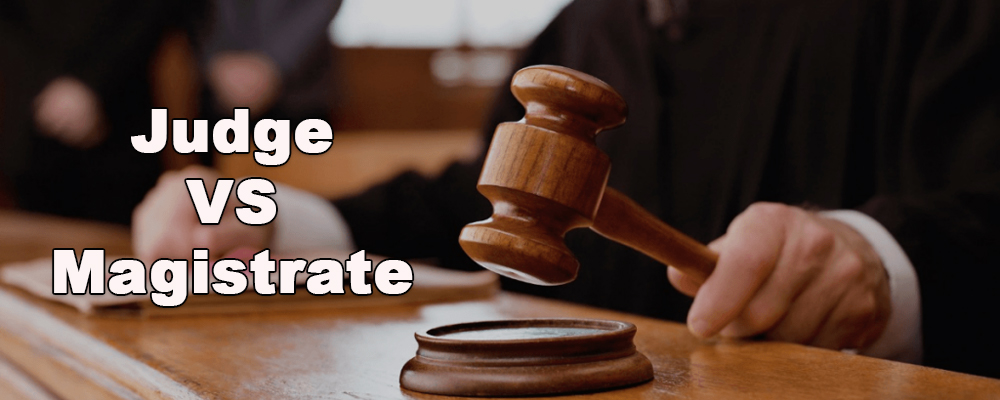The Chapter 2 of the Code of Criminal Procedure 1973, talks about the constitution of Criminal courts and officers, let’s understand the power and functions with this particular article
As per the section 6 of the CrPC that lays the provision that beside the High Courts and any other court constituted as per law, there shall be the following classes of the criminal courts and those are –
- Courts of Session
- First-class judicial magistrate and, in cities, metropolitan magistrate
- Judicial Magistrate Second class
- Executive Magistrates
Let’s examine the distinction between judges and magistrates.
Need A Legal Advice
The internet is not a lawyer and neither are you. Talk to a real lawyer about your legal issue

A magistrate is a civil servant who looks after the law in the particular area either in district or in city, this word magistrate is derived from the word that is a French word known as Magistrat which means civil officers who is incharge of administering the laws, a magistrate is the person who looks after the civil and criminal matters and makes the decision, this post of District Magistrate was created by Warren Hasting in year 1772, the main function of the DM is look after the general administration, recover land revenue, and manage law and order in the district at that particular time the magistrate was said to be the head of the revenue organisation, at that there were many more responsibilities vested in the hands of the magistrate those are registration of the lands, settling the disputes, providing loan to the farmers, drought relief etc. as he is the District magistrate he also inspects police and the subordinate courts.
A judge is a person who is appointed to take decision, the judge is a person who obeys the court proceedings, he may work alone or work with expert panel of Judges, the judges are the experts judicial officers who manages the court proceedings of the court and they also hear the disputed matters and makes decisions, this word judge is derived from the latin word judicare which means to judge, or to examine officially and then he/she pronounces judgement.
The key difference between the Magistrate and the Judge are?
We can say that a judge can be called as arbitrator, i.e the person decides the matter in the court and the magistrate is the person who is elected by the judges of the High Court of the particular state who maintain law and order in a particular area or region.
The magistrate makes decisions generally on small matters, the initial decisions of the criminal cases are given by the magistrate, but the judges make the decision in serious cases for which the deep knowledge of the law and the decision making skills is very much important.
A Magistrate has the power to impose fines and sentences of imprisonment for a specified period. But judges have the right to impose a sentence of death or life imprisonment.
How does Lead India help you?
Lead India will help you in every field of law where you need our help, you ask the question to our experts and also you can get legal advice, and also we provide the best legal experts who will help you in any such legal disputes.





 Talk to a Lawyer
Talk to a Lawyer